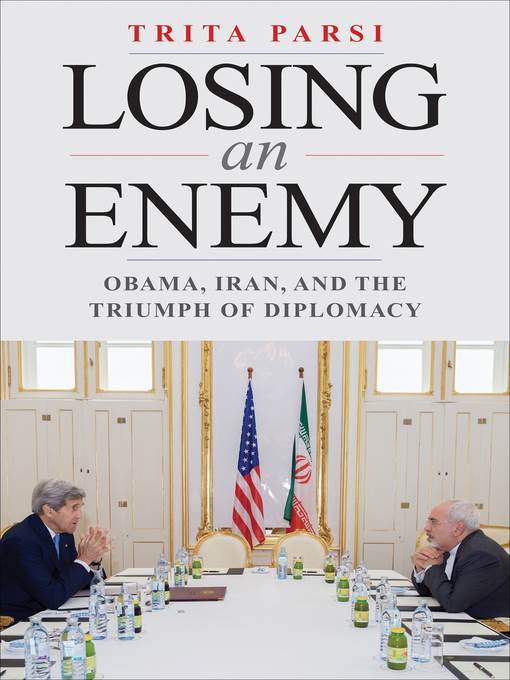
Losing an Enemy
Obama, Iran, and the Triumph of Diplomacy
کتاب های مرتبط
- اطلاعات
- نقد و بررسی
- دیدگاه کاربران
نقد و بررسی

May 8, 2017
In this exceptionally well-written piece of reportage, Parsi (A Single Roll of the Dice), president of the National Iranian American Council and adviser to President Obama during the negotiations that resulted in the 2015 Iran nuclear deal, gives his own account of this diplomatic breakthrough. There are both heroes and villains in Parsi’s telling. Without presidents Obama and Hassan Rouhani at the helm of their countries, Parsi writes, this historic deal would likely not have been made. Likewise, Secretary of State John Kerry and his Iranian counterpart, Foreign Minister Javad Zarif, skillfully kept both sides on board despite numerous setbacks. (The crucial compromise on the U.S. side was agreeing to Iran’s right to enrich uranium.) Credit also goes to the government of Oman for providing a secret channel for negotiations. As Parsi reminds readers, there was no dearth of opponents who sought to derail the deal: Saudi Arabia, Israel, the American Israel Public Affairs Committee (AIPAC), and congressional Republicans. Obama receives credit for marshaling a diverse group of supporters to block congressional rejection of the deal. The book’s strength derives from Parsi’s high level of access to key players on both sides. Parsi brings his unique vantage point to what will undoubtedly be the definitive account of Obama’s signature foreign policy achievement.

June 1, 2017
The president of the National Iranian American Council probes the reasons behind the diplomatic success of the recent nuclear deal with Iran and the lifting of sanctions.A self-described longtime advocate of diplomacy, Parsi (A Single Roll of the Dice: Obama's Diplomacy with Iran, 2012, etc.) enthusiastically embraces the breaking of the hostile status quo over the last three decades between the U.S. and Iran. In this knowledgeable survey of the "mutual demonization and intense geopolitical rivalry" between the two countries since the Iranian Revolution of 1979, the author works through the stages that led to the recent diplomatic breakthrough, which occurred against all odds and in the face of vociferous criticism from Israel and Republican hawks in the U.S. Since the defeat of Saddam Hussein and Iraq, Israel believed strongly that it was in its interest to isolate Iran; this persistent "existential threat" to Israel would derail any peace initiatives, as reinforced by the potent pro-Israel lobby, the American Israel Public Affairs Committee. However, as Parsi delineates carefully, the 2003 invasion of Iraq began to change the American-led order in the Middle East because it failed so disastrously--and turned out to be "a blessing in disguise" for Iran. President Barack Obama's accession to power came at a time of public war fatigue, and his emphasis on "soft power" and diplomacy caught Iran off guard. Could the U.S. actually be trusted? Parsi looks closely at how Benjamin Netanyahu's relentless efforts to derail any detente between Washington and Tehran completely backfired. The new U.N. sanctions of 2010 were not having the desired restrictive effects on Iran's ability to enrich uranium or build centrifuges, but diplomacy eventually would, particularly the behind-the-scenes work between Sen. John Kerry and several Omani go-betweens. Moreover, the surprising 2013 election of the centrist Hassan Rouhani, who proved to be "the Sheikh of Diplomacy," further challenged the status quo. An astute and generous portrayal of both sides of the negotiating table.
COPYRIGHT(2017) Kirkus Reviews, ALL RIGHTS RESERVED.

























دیدگاه کاربران